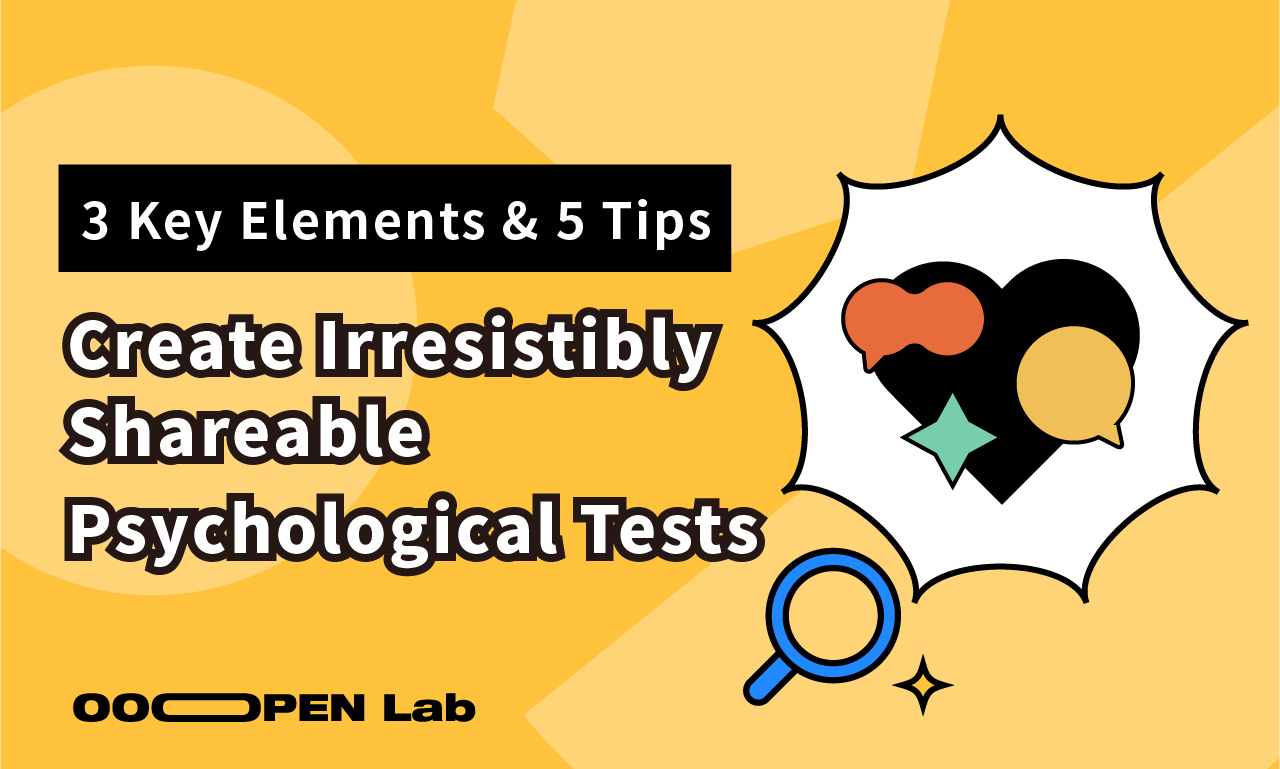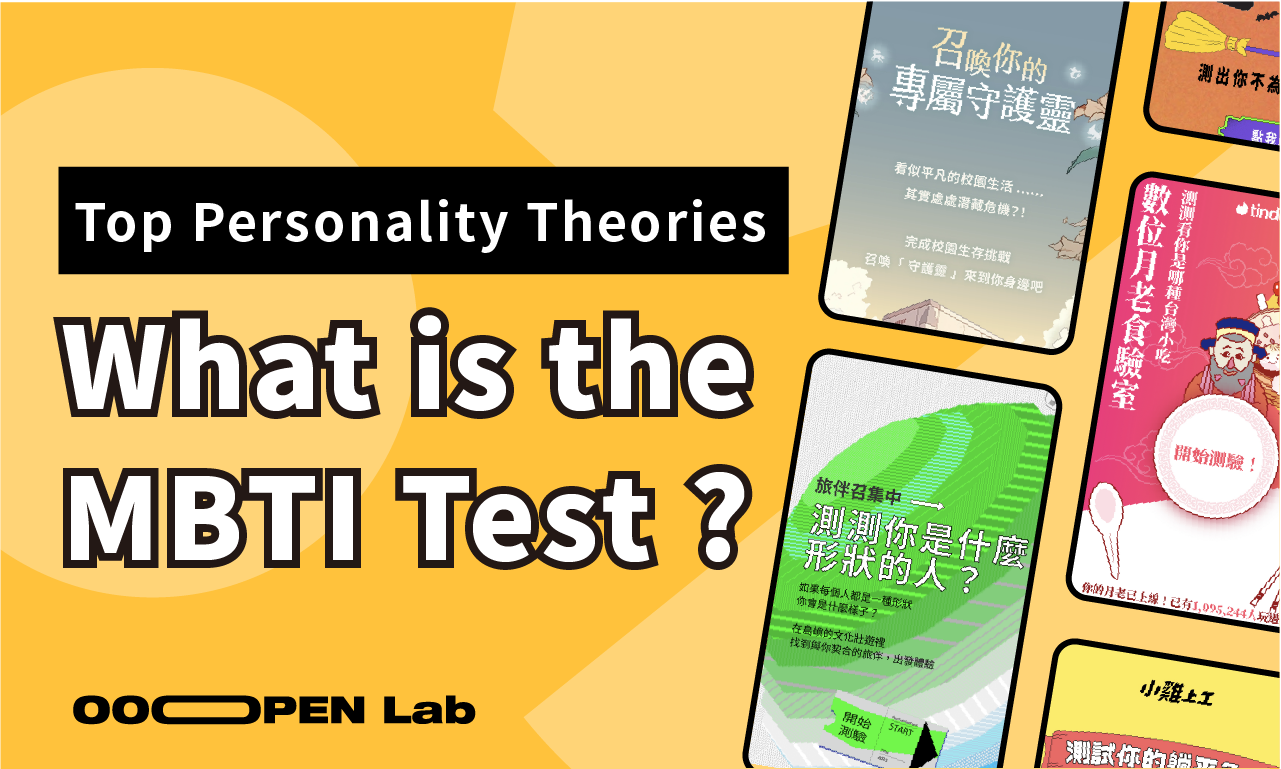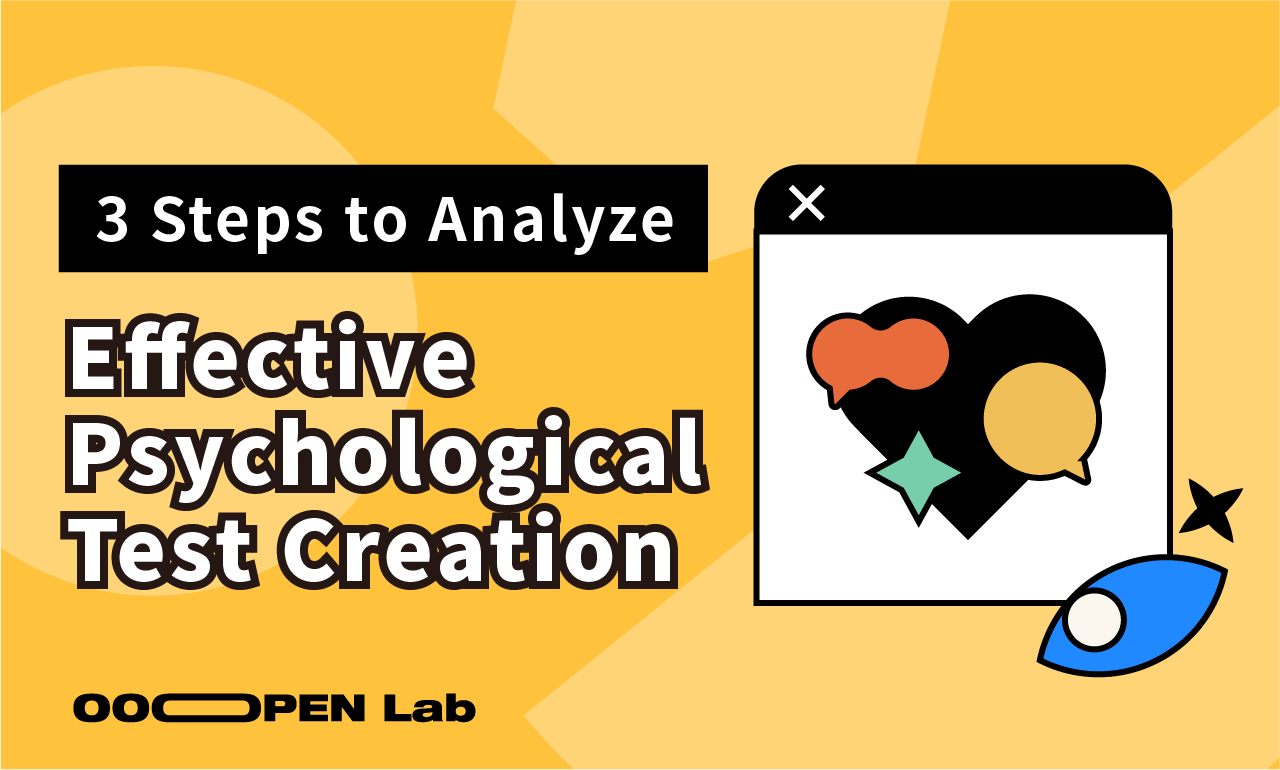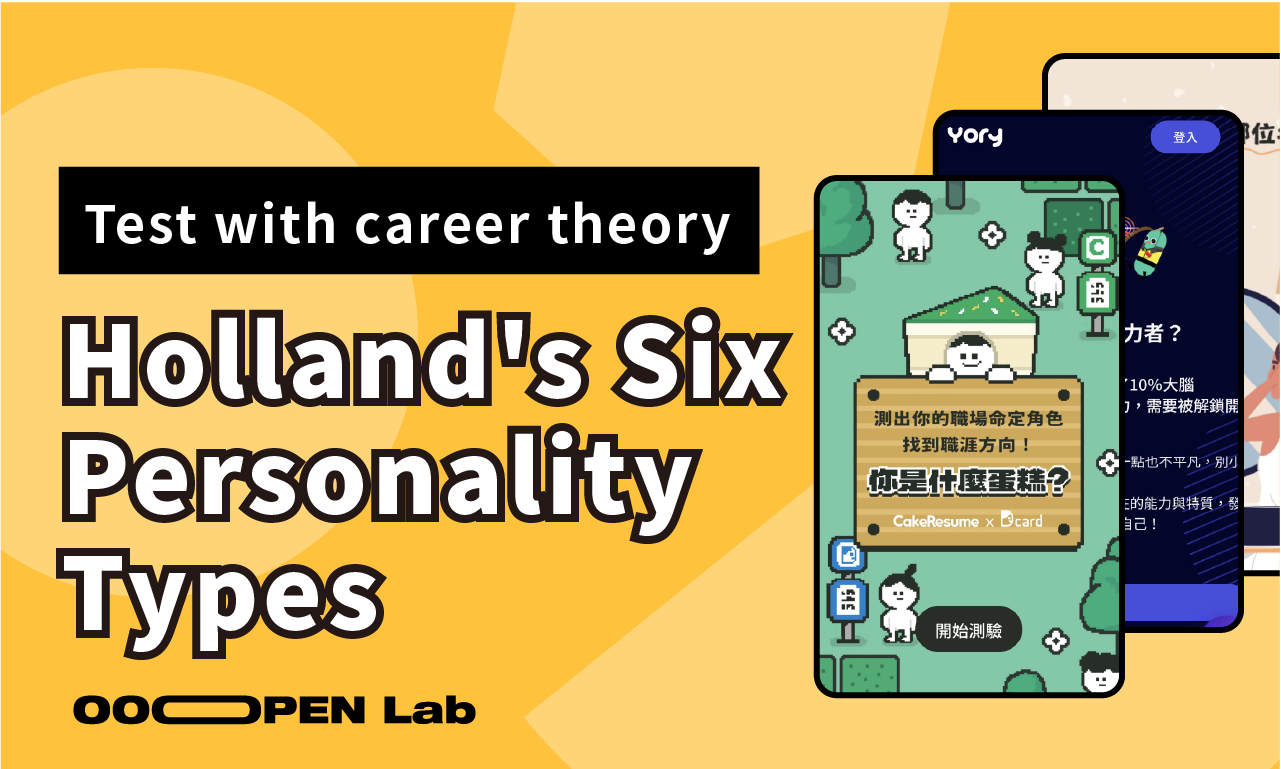In recent years, there has been a surge of marketing cases using psychological tests on social media. Why have psychological tests become an essential marketing tool? What are the key elements in creating them? What factors make a psychological test go viral? Let’s break it down step by step:
3 Key Features of Using Psychological Tests for Marketing
➊ Gamified Interaction: Making the Test Feel Like a Game to Boost Engagement
Well-packaged psychological tests can make the answering process feel like a game, guiding respondents step by step. This approach effectively increases completion rates, often higher than standard surveys.
➋ Contextual Questions: Easily Start Conversations and Subtly Introduce Content and Products
Questions designed with images and text can enhance the immersive experience, making the answering process feel like participating in a story. Brands can use the scenarios created by these questions to start deeper conversations with respondents, subtly introducing more brand content.
➌ Personalized Experience: Attract Shares and Reduce Traffic Costs
By pre-setting tags in the options, respondents can be grouped based on their answers to receive the most relevant results. When respondents feel that the results are accurate, they are more likely to share them, inviting friends to join. This significantly reduces traffic costs !

What Are the 5 Essential Elements of Creating a Psychological Test ?
➊ Eye-Catching Main Visual: Capturing Attention and Initiating Interaction
The main visual design is the first element people see before diving into the psychological test, making it almost the core of the test! A great visual can encourage people to share voluntarily and make those who see the result image want to try it themselves. It’s key to spreading the test widely.

➋ Engaging Answer Interface: Using Images and Videos to Encourage Completion
A rich question interface with images and videos makes respondents more eager to complete the test. A question bank filled with lively and vibrant questions, combined with exquisite illustrations or dynamic materials, can make the answering process feel like an interactive audiobook, fully immersing participants.


➌ Personalized Test Results: Providing Resonant Information
By grouping respondents based on their answers and providing corresponding test results, you can effectively increase their resonance with the descriptions. This boosts the likelihood of respondents sharing their results and playing multiple times.


➍ Clear Call to Action (CTA): Providing Guidance After the Test
The end of the test is just as important. Providing clear guidance to respondents who have completed the test usually results in excellent conversion rates! Common CTAs include prompts to follow, purchase, subscribe, or share the test.

➎ Dynamic Adjustments: Regularly Analyze Performance and Improve High Bounce Rate Interfaces
Regularly observing performance and tweaking question presentation after the test goes live is crucial. Key areas to watch include: whether specific questions have unusually high bounce rates, exceptionally long answer times, or noticeably uneven distribution of answer choices. Identifying and addressing these issues can enhance the test completion rate !


How to Market Using Psychological Tests?
Using the 3 key factors and 5 essential elements mentioned earlier for creating psychological tests, we’ve selected 3 popular test cases to analyze how to effectively apply these tips! By leveraging these strategies, you too can create a hit psychological test. For more inspiration, check out our must-try psychological tests package that we’ve prepared for you!
Personalized Experience with Eye-Catching Visuals & Clear CTA
Take the Taiwan Creative Expo’s “Shape Psychology Test” as an example. Although it uses MBTI as its foundation, creative packaging represents personalities through shapes. This approach attracts people to try it enthusiastically and recommends different activities based on personality, successfully generating a buzz online!

“Gamification x Contextual” Application: Providing Personalized Analysis Through Immersive Story Experience
Take Amazbrew Tavern’s “How Drunk Are You in Life?” test as an example. You venture alone to a bar, responding to choices as the story unfolds. In the end, you receive a cocktail personality analysis. The entire content is closely tied to the “bar” theme, creating an immersive project design that successfully attracts many visitors !

Personalized Experience Everyone Wants to Try: Exclusive Test Results x Clear CTA
Take Giloo’s documentary video test “Which Celebrity Lives in Your Soul?” as an example. With a theme centered on celebrities in your soul, paired with highly relatable life scenario questions and offering free viewing codes, it effectively attracts drama fans to discover their soul celebrity !

How Can Psychological Tests Be Advanced for Marketing Purposes?
Collecting More Accurate Target Audience Data Through Interaction
Engaging psychological tests can attract users to play, increasing brand exposure while collecting data on users interested in the brand. This data can be used to create a remarketing audience list.
Guiding to Different Content Pages Based on Tags
Using option tags to guide users to different result pages allows for more precise exposure to preferred products, events, or content, resulting in higher conversion rates.
Analyzing Preferences Through Statistical Results
Option tags also facilitate cross-analysis, helping to understand user preferences in various contexts and styles. This creates a more accurate audience profile, serving as a valuable reference for future marketing efforts.
Start Creating Your Own Psychological Test Now!
We hope this article helps you in your journey to create a psychological test! For more inspiration, visit OOOPEN Lab’s Instagram or check out our curated case studies for ideas !





